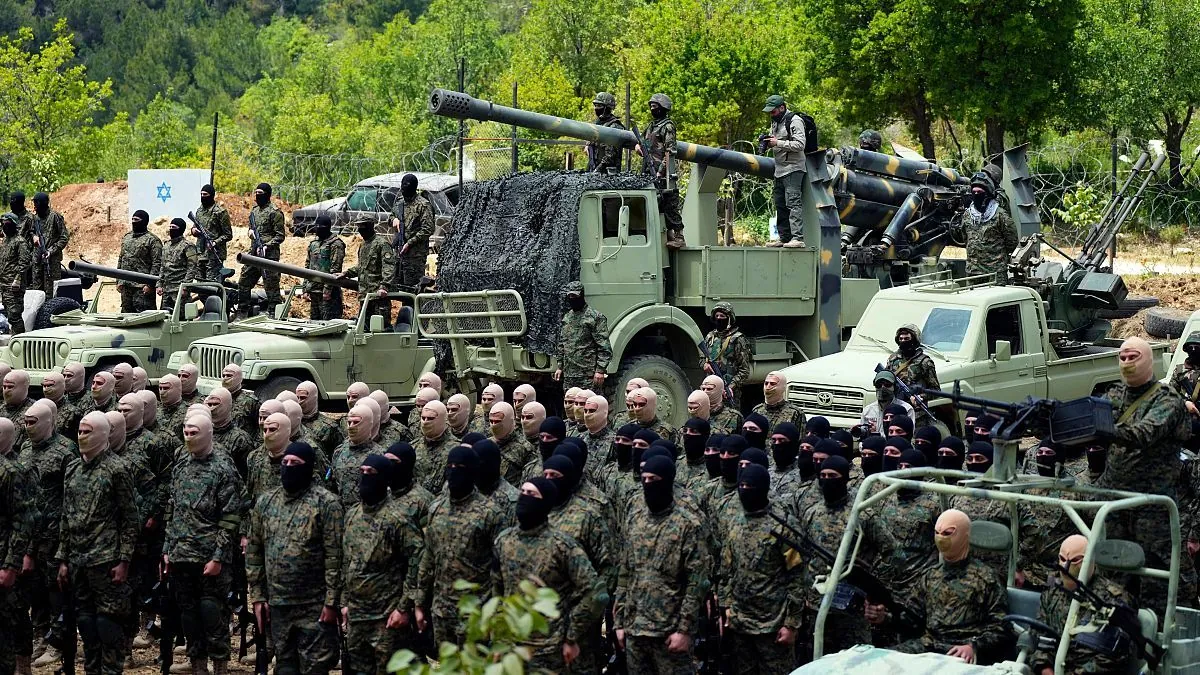Hezbollah, widely regarded as the world's most potent non-state military force, has demonstrated unexpected restraint in response to recent Israeli provocations. This behavior has puzzled observers, given the group's formidable capabilities and previous threats.
The Lebanese organization, founded in 1985, possesses an arsenal surpassing many Middle Eastern state armies. Its military wing, estimated to have 25,000-50,000 fighters, has access to guided missiles capable of striking any Israeli city. Despite this strength, Hezbollah's reaction to Israeli actions has been notably muted.
In the past two months, Israel has conducted two airstrikes on Beirut, resulting in the deaths of experienced Hezbollah commanders. Additionally, last week saw synchronized attacks on the group's communication devices, incapacitating thousands of its members. These actions seemingly contradicted warnings from Hassan Nasrallah, Hezbollah's leader, who had previously threatened rocket strikes on Tel Aviv in retaliation for such provocations.
Hezbollah's response, while not entirely passive, has fallen short of expectations. This weekend, the group launched its most significant cross-border rocket salvo since October 2023, when it began firing into northern Israel in solidarity with Hamas. However, the organization has deliberately avoided targeting Israeli population centers or deploying its most sophisticated weaponry.
Several factors contribute to Hezbollah's restrained approach:
Iranian influence: As Tehran's most powerful proxy in the Middle East, Hezbollah receives significant financial and military support from Iran. The Iranian regime views the group as a deterrent against potential Israeli attacks on its nuclear program. Consequently, Iran may be restraining Hezbollah to preserve this strategic asset.
Domestic considerations: Lebanon's divided political landscape influences Hezbollah's decision-making. The organization, which operates a network of social services and has a political wing participating in Lebanese elections, is mindful of domestic opinion regarding potential escalation.
Strategic caution: Hezbollah leadership appears wary of falling into what they perceive as a trap set by Israeli Prime Minister Benjamin Netanyahu. They fear that a full-scale war could draw in Western powers, particularly the United States, complicating the conflict.
Long-term attrition strategy: Analysts suggest that Hezbollah may prefer a prolonged, low-intensity conflict to weaken Israel's resolve rather than expending its full firepower in a single confrontation.
"Weakening Israel through an attritional, drawn out confrontation is, in my opinion, the strategy Hezbollah prefers."
It's worth noting that Hezbollah's current military capabilities far exceed those of 2006 when it engaged Israel in a 34-day conflict. During that time, the group possessed only 15,000 mostly unguided rockets. Today, its arsenal is estimated at around 150,000 rockets and missiles, including advanced systems like the Iranian-supplied Fateh 110 with a 300km range.
As tensions persist, the international community watches closely to see how this complex situation unfolds. Hezbollah's restraint, while puzzling to some, reflects the intricate web of regional politics and strategic considerations at play in the volatile Middle East.
